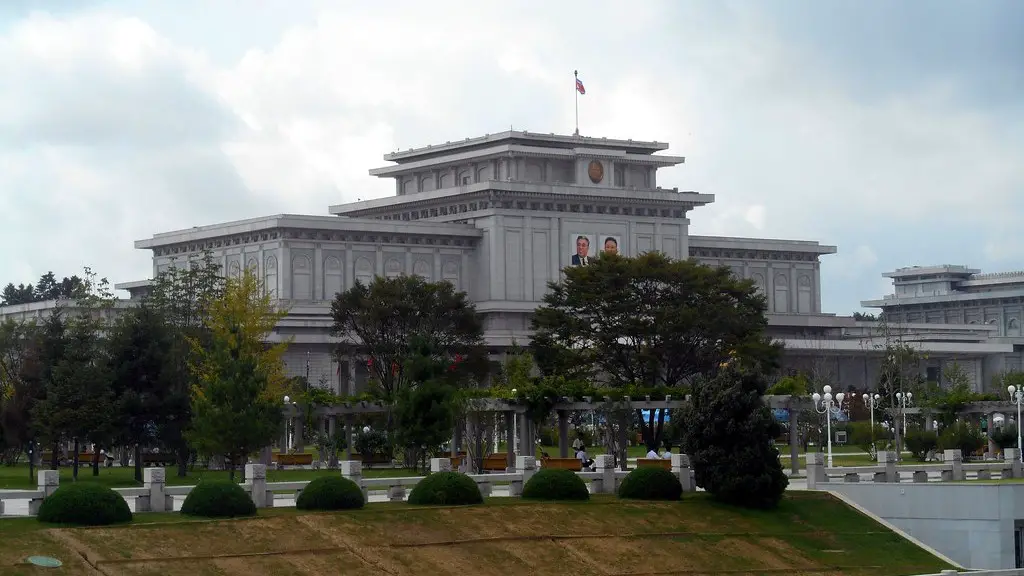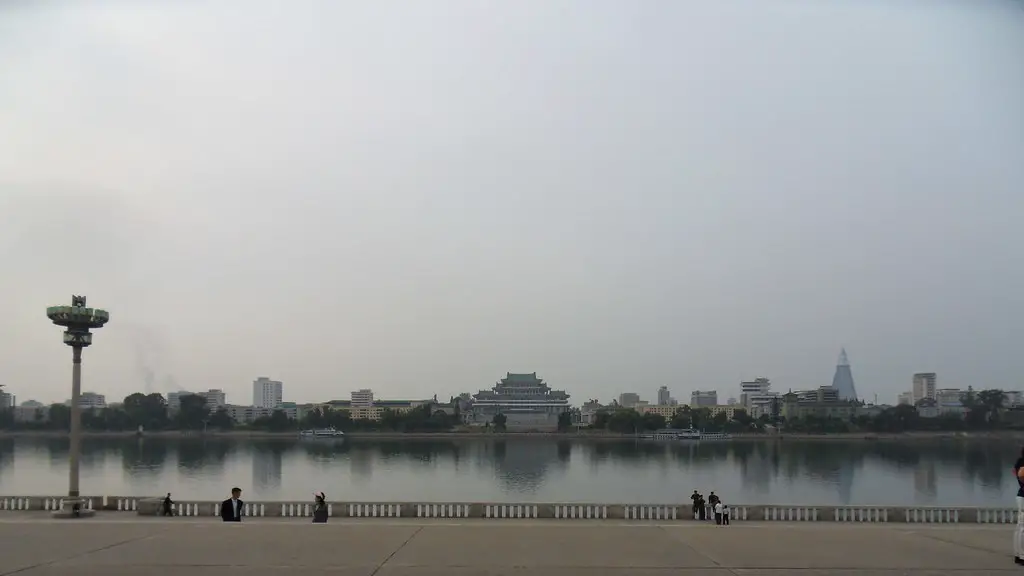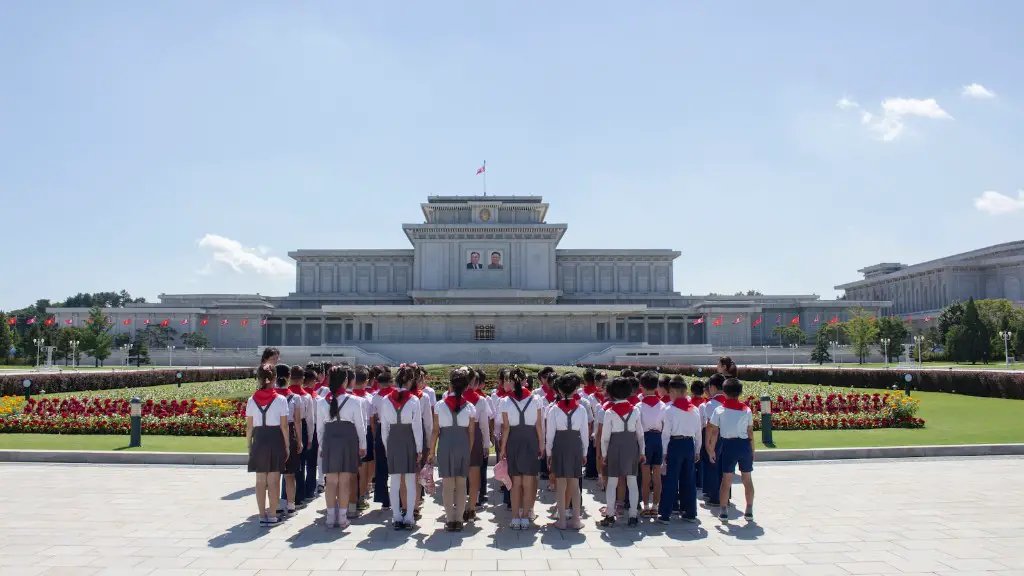The United States has maintained sanctions against North Korea since the 1950s in response to the North Korean regime’s aggressive actions towards its neighbors and its nuclear weapon and ballistic missile programs. The current sanctions regime is the most comprehensive and restrictive ever imposed by the United States against any country and targets North Korea’s economy and government.
The United States has placed a number of sanctions against North Korea in an effort to pressure the country to change its policies. These sanctions have restricted trade and financial transactions, and have also banned travel to and from North Korea.
Why were sanctions imposed on North Korea?
There are a variety of reasons why sanctions may be imposed. In the case of the DPRK, the UNSC imposed sanctions in order to encourage the DPRK to comply with its international obligations with respect to its nuclear program.
Economic sanctions are a powerful tool that can be used to influence the behavior of another country. They are often used as a coercive measure to achieve particular policy goals, such as in the case of trade negotiations, or to punish a country for humanitarian violations.
Sanctions can have a significant impact on a country’s economy, and can often be devastating to the civilian population who bears the brunt of the consequences. It is important to weigh the pros and cons of imposing sanctions before taking this step, as there can be serious unintended consequences.
Does the US trade with North Korea
According to the United Nations COMTRADE database, the United States exported $432 thousand worth of goods to North Korea in 2018. This information is last updated as of February 2023. These exports likely consist of essential goods and materials that North Korea needs in order to function and survive. Given the current tensions between the two countries, it is possible that this trade relationship could change or be severed entirely in the future.
There are a variety of reasons why a country may choose to sanction another country. Some of the most common reasons include:
1. To prevent the spread of nuclear, chemical, or biological weapons
2. To punish a country for violating human rights
3. To force a country to comply with international law
4. To stop a country from supporting terrorism
5. To prevent a country from engaging in drug trafficking
6. To pressure a country to change its policies
Economic sanctions are typically used to try to force a change in a country’s policies without resorting to military force. Common economic sanctions include trade embargoes, restrictions on investment, and bans on financial transactions.
Diplomatic sanctions are measures taken to punish a country by reducing or breaking diplomatic ties. This can include expelling diplomats, withdrawing recognition of the government, and suspending diplomatic relations.
Military sanctions are typically used as a last resort when other measures, such as economic or diplomatic sanctions, have failed. Military sanctions can include a naval blockade, bombing, and sending in ground troops.
Sport sanctions are often used as a way to punish a country for political reasons. For example, countries may be banned from competing in international sporting events, such as the
What sanctions does the US have?
The United States has a long history of imposing sanctions on other countries. These sanctions can take many different forms, including bans on arms-related exports, controls over dual-use technology exports, restrictions on economic assistance, and financial restrictions such as requiring the United States to oppose loans by the World Bank and other international financial institutions. While the motivations for these sanctions vary, they often seek to punish countries for perceived bad behavior or to coerce them into changing their policies.
The US Department of the Treasury’s Office of Foreign Assets Control (OFAC) is responsible for administering and enforcing economic and trade sanctions based on US foreign policy and national security goals.
OFAC’s sanctions programs target countries, terrorists, international narcotics traffickers, and those engaged in activities related to the proliferation of weapons of mass destruction. The programs are designed to deny terrorists and their supporters the resources they need to plan and carry out attacks, and to disrupt and dismantle their financial and logistical networks.
OFAC also works to prevent the proliferation of weapons of mass destruction by targeting countries and entities that are involved in proliferation activities, and by disrupting the financial networks that support proliferation.
What happens if an American visits North Korea?
The US State Department has released a travel advisory for citizens planning to travel to North Korea, warning them of the “continuingserious risk of arrest and long-term detention of US nationals.” The advisory also urges citizens to “exercise increased caution” due to the “critical threat of wrongful detention.”
China is North Korea’s largest trading partner. The two countries have strong economic ties, with trade between them totaling $6.4 billion in 2017. China is also a major source of aid and investment for North Korea.
Who is North Korea’s allies
The two countries have a long history, and their relationship is often described as “special”. China is one of the few countries that still has a formal defense treaty with North Korea, and it is often considered to be Pyongyang’s closest ally.
The Office of Foreign Assets Control (“OFAC”) of the US Department of the Treasury administers and enforces economic and trade sanctions based on US foreign policy and national security goals against targeted foreign countries and regimes, terrorists, international narcotics traffickers, those engaged in activities .
Who has to follow US sanctions?
The Office of Foreign Assets Control (“OFAC”) of the US Department of the Treasury administers and enforces economic and trade sanctions based on US foreign policy and national security goals against targeted foreign countries, terrorists, international narcotics traffickers, those engaged in activities related to the proliferation of weapons of mass destruction, and other threats to the national security, foreign policy or economy of the United States.
OFAC acts under Presidential wartime and national emergency powers, as well as authority granted by specific US laws, to impose controls on transactions and freeze foreign assets under US jurisdiction. Many of the sanctions are based on United Nations and other international mandates, are multilateral in scope, and involve close cooperation with allied governments.
OFAC regulations generally prohibit all transactions by US persons (including individuals and companies) that involve any property in which a sanctioned person has an interest.
Since the Russia sanctions were put in place, oligarchs and financial institutions have been forced to divest from assets they’ve held outside of the country. This has prompted banks in other countries to sever ties with the Russian financial sector, making it difficult for them to operate internationally. The sanctions have been effective in limiting the Russian government’s ability to access international capital markets and limiting the ability of Russian firms to do business abroad.
Has the US ever been sanctioned
The United States’ recent involvement in trade wars and imposition of economic sanctions on multiple countries has led to retaliation in the form of economic sanctions from those countries. This has put the United States in a difficult position, as it struggles to maintain its position as a global economic leader.
Individual sanctions are a powerful tool in the effort to combat international crime and terrorism. By targeting individuals involved in these activities, we can disrupt and deter these illegal activities. Additionally, these sanctions send a strong message to would-be criminals and terrorists that their activities will not be tolerated.
Can the US sanction China?
The United States government has applied sanctions against certain institutions and key members of the Chinese government and its ruling Chinese Communist Party (CCP), certain companies linked to the People’s Liberation Army (PLA), and other affiliates that the US government has accused of aiding in human rights abuses. The US government has accused the Chinese government of Human Rights abuses, and has placed sanctions on them in an attempt to pressure them to change their policies. The US government has also accused the PLA of being involved in human rights abuses, and has placed sanctions on companies linked to them in an attempt to pressure the Chinese government to change its policies.
In short, any individual or entity that is operating in the United States or its territories must comply with the Office of Foreign Assets Control’s (OFAC) regulations. This includes all US citizens and permanent resident aliens, regardless of where they are located, as well as all businesses and organizations incorporated in the United States, even if they have branches or affiliates located abroad.
Conclusion
The United States has a range of sanctions against North Korea in response to the country’s nuclear and ballistic missile programs, human rights abuses, and other illicit activities. These include economic sanctions targeting key sectors of the North Korean economy, as well as bans on exports of key goods and technologies.
The United States has several sanctions against North Korea in place in an effort to pressure the country to abandon its nuclear and ballistic missile programs. These sanctions include bans on exports and imports, restrictions on financial transactions, and prohibitions against travel. While the effectiveness of these sanctions is debatable, they are still in place and show no signs of being lifted anytime soon.





